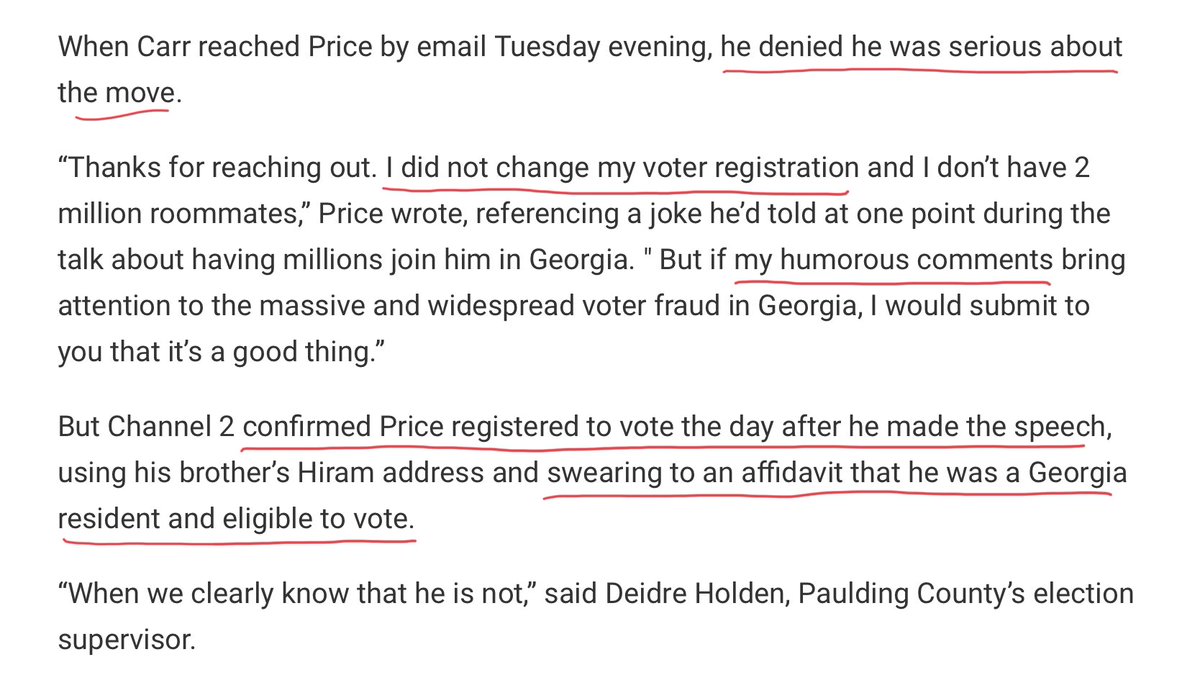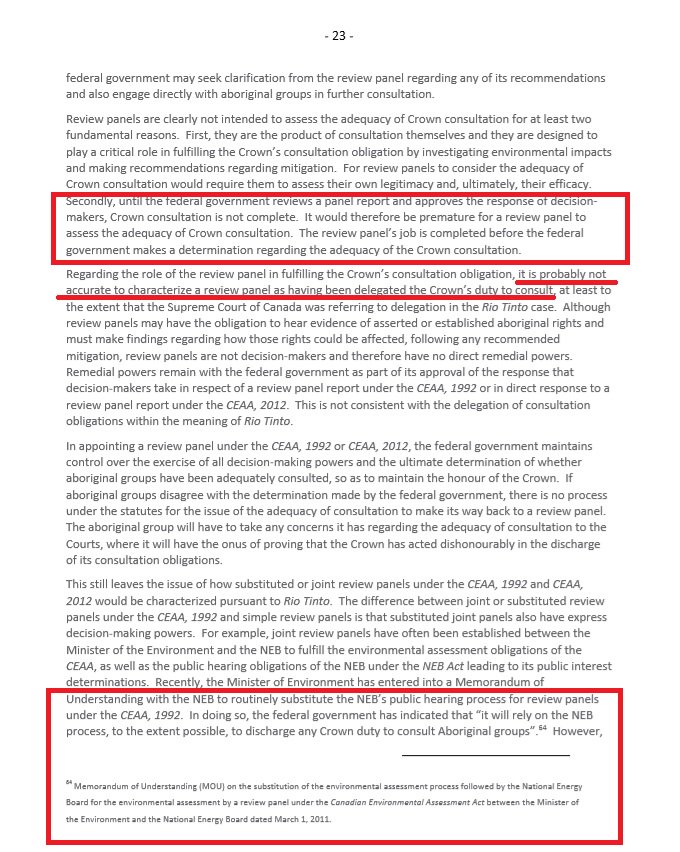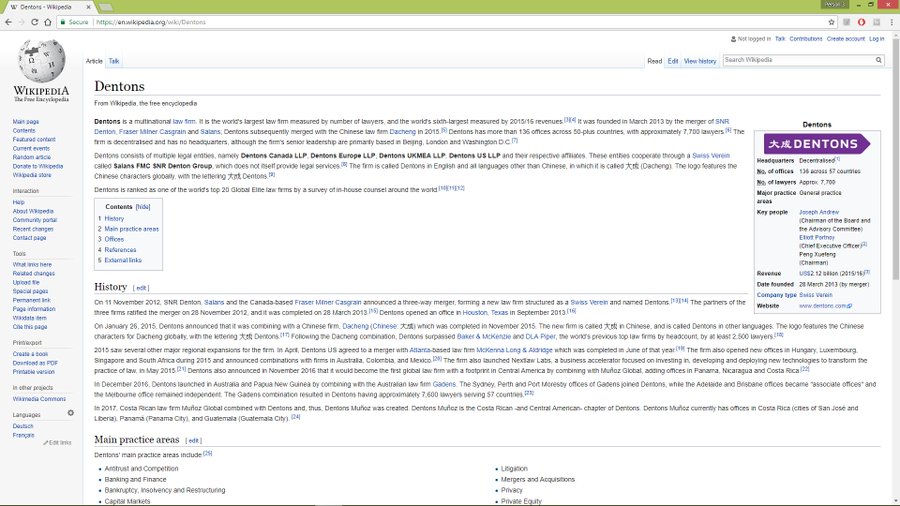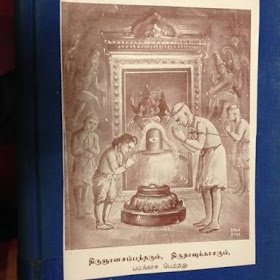The debate over law and order comes to the forefront yet again. Law and order - both can be maintained with equal zeal. One needs to take precedence over the other. Will that be Order over Law or Law over Order?
We have watched and waited too long for the government to punish. It never happens and even in some cases it does it lakes too long,and many more crimes are done in the meantime. Quick justice like this is the best way out.
— Ratna murlidharan (@Ratnamurlidhar2) January 2, 2021
More from Law
2/ A pretty kickass reporter, Nicole Carr, recorded the video before the guy took it down. When she confronted him he insisted it was all a joke and of course he didn’t register in Georgia. But she checked and he had.
3/ This is Nicole Carr ...
\u201cIf that means changing your address for the next two months,so be it.I\u2019m doing that. I\u2019m moving to Georgia.\u201dOur 6 investigation reveals deleted video-a FL attorney telling GOP members how to move to GA,vote in runoffs. It\u2019s illegal.There\u2019s more,& an investigation @wsbtv #gapol pic.twitter.com/or2PgWQrT1
— Nicole Carr (@NicoleCarrWSB) December 2, 2020
4/ amazing. Here’s where she catches him 🤣🤣🤣🤣🤣🤣🤣🤣🤣🤔🤔

5/ Also on the video you’ve got these ladies saying, hey wait, this can’t really be legal can it? And he’s like, yeah totally cool. Then he advises on how to create a backstory for the fake move.

Oral argument in scheduled for January 21 at 3 pm in this case & will be telephonic. To listen, call 1-800-768-2983, code: 2640561#. Alternate phone numbers if the toll-free number gives you trouble: 1-907-206-2349 or 1-913-904-9867 or 1-212-231-3884.
— Alaska Court System (@AlaskaCourt) January 20, 2021
Before posting the MCC v. MOA briefs, it's worth noting that the legal arguments made by Rivera's supporters parallel those made by Dunleavy in Recall Dunleavy v. State. Both Rivera and Dunleavy argued that their recall petitions should have been denied by election officials.
So let's play a game called "Who Argued It." Guess which politician, Rivera or Dunleavy, made the following arguments in court:
1. "The grounds for recall stated in the petition are insufficient as a matter of law, and therefore the petition should have been rejected."

2. "Even under Alaska’s liberal recall standards, courts have not hesitated to find petitions legally insufficient when those petitions did not contain sufficient factual allegations of unlawful activity to state sufficient grounds for recall.”
3. "The allegations must be sufficiently particular to allow the official a meaningful opportunity to respond . . . . [and] ensure that voters have the information they need to vote."
You May Also Like
🗓 Release date: October 30, 2018
📝 New Emojis: 158
https://t.co/bx8XjhiCiB

New in iOS 12.1: 🥰 Smiling Face With 3 Hearts https://t.co/6eajdvueip

New in iOS 12.1: 🥵 Hot Face https://t.co/jhTv1elltB

New in iOS 12.1: 🥶 Cold Face https://t.co/EIjyl6yZrF

New in iOS 12.1: 🥳 Partying Face https://t.co/p8FDNEQ3LJ

1) UCAS School of physical sciences Professor
https://t.co/9X8OheIvRw
2) UCAS School of mathematical sciences Professor
3) UCAS School of nuclear sciences and technology
https://t.co/nQH8JnewcJ
4) UCAS School of astronomy and space sciences
https://t.co/7Ikc6CuKHZ
5) UCAS School of engineering
6) Geotechnical Engineering Teaching and Research Office
https://t.co/jBCJW7UKlQ
7) Multi-scale Mechanics Teaching and Research Section
https://t.co/eqfQnX1LEQ
😎 Microgravity Science Teaching and Research
9) High temperature gas dynamics teaching and research section
https://t.co/tVIdKgTPl3
10) Department of Biomechanics and Medical Engineering
https://t.co/ubW4xhZY2R
11) Ocean Engineering Teaching and Research
12) Department of Dynamics and Advanced Manufacturing
https://t.co/42BKXEugGv
13) Refrigeration and Cryogenic Engineering Teaching and Research Office
https://t.co/pZdUXFTvw3
14) Power Machinery and Engineering Teaching and Research
























